Saco farmer Rick Grant does not want to run afoul of any labor laws. He’s a straight up kind of guy and pays more than minimum wage to his field workers. But as the laws relate to family-owned farms his size – 125 acres under cultivation, so good-sized but far from Big Ag – some aspects of the Fair Labor and Standards Act are confusing. Or worse.
“Some of their rules seem silly, or silly to me,” he said. Like the one that means workers on Grant’s Farm shouldn’t lay hands on peppers grown by his cousin on another farm a few miles away.
“Say he has 10 extra cases of peppers,” Grant said. That’s not enough to make a trip to the Hannaford distribution center worth the cousin’s while. But say Grant’s guys have packed 100 cases to take to market. Why not combine forces, save gas and give his cousin’s peppers a lift? Two birds bound for market, one stone.
“But if I decide I want to help him out, I can’t have my hired guys touch that food.”
“And I have to be careful that I am the one driving that truck and not one of them.”
That’s because those peppers weren’t grown on his farm. Yes they are peppers, grown in Maine soil, but not Grant’s soil. Therefore moving them would constitute non-agricultural labor for his workers.
Complexities in labor laws mean job descriptions that shift at surprising, some would say nonsensical, points, creating bookkeeping headaches and opening the door to potential penalties from the Department of Labor’s Wage and Hour Division. Grant keeps his books and his accountant up to date and wants to avoid a bureaucratic nightmare for doing something as deceptively simple as doing his cousin a favor.
The U.S. Department of Labor’s Wage and Hour Division has increased its efforts to enforce fair labor laws nationwide. “Vigorously” is the department’s term for it. They’ve added investigators and focused on traditionally low wage industries, like farm work, launching 1,400 investigations in agriculture in 2015. The department found that 80 percent of its investigations in the areas of migrant, seasonal and guest workers uncovered violations worth a total of $4.3 million in back wages to more than 10,000 workers.
Those are national numbers; none were available for Maine.
But recently the Department of Labor also imposed penalties on Vermont farms and a vineyard in New Hampshire for violations of fair labor laws. Grant, like many in Maine’s agricultural community, has his ear to the ground and a lot of questions. Have inspectors been by? Has anyone been penalized? Does anyone really understand this stuff, besides lawyers and bureaucrats?
ROAD BLOCK TO GROWTH?
Some farmers are too skittish to talk about it publicly, but privately wonder if they’ve inadvertently violated the rules themselves. They could have, just by doing something as common in Maine agriculture circles as taking on an unpaid apprentice they found through MOFGA (Maine Organic Farmers and Gardeners Association) or running a mutually beneficial arrangement exchanging a CSA for work hours on the farm. After all, the vineyard in New Hampshire received a cease and desist order from the Department of Labor for allowing people to pick grapes in exchange for a free lunch and wine tasting, according to N.H. state legislator Bob Haefner.
The new food movement and rejuvenated interest in farming has been good for Maine’s economy, but it’s also created nebulous new situations where farmers – and their employees – might be violating labor laws without even realizing it. Practically everyone has some means of running a credit card at the farmstand or farmers market these days. It’s standard operating practice. But letting a worker run a customer’s credit card could lead to unexpected costs for the farmer because it changes how that employee must be paid.
Last summer, the issue heated up enough for the Agricultural Council of Maine to ask a Department of Labor specialist to speak to the group, which included a staffer from Senator Angus King’s office.
“What happened in Vermont certainly concerns me, especially when it comes to what it could mean for Maine farmers,” King said in a written statement. “The agricultural industry is a bright spot in our rural economy and I want to see it continue to grow, which is why I will work to facilitate conversations between government agencies and Maine farmers so that we can honor the intent of labor laws in a way that serves everyone involved.”
If the meeting is any indication, more conversations will be needed, because some of the attendees confessed to being just as confused afterwards.
“The challenge is trying to understand what those rules and regulations are saying,” said MOFGA executive director Ted Quaday, who was at that meeting. “Sometimes it is hard to figure out why a law was created and what they are trying to establish with it.”
At the Agricultural Trades Show in Augusta last month, the Conservation Law Foundation’s Legal Services Food Hub hosted a panel on Employment Law for farmers, with the goal of “untangling the web of labor law” for farm workers, including interns and apprentices. The group is working on a handout for farmers, similar to one prepared by the Northeast Organic Farming Association of Vermont (NOFA-VT is that state’s version of MOFGA). Ben Tettlebaum organized the panel, which was geared toward small and mid-size farmers, and included Drummond and Woodsum labor attorney Tom Trenholm. As Tettlebaum put it, the commodity farmers already “have a handle on it for the most part.”
“The small growers are like ‘Whoa, we didn’t realize we were out of compliance,'” Tettlebaum said.
Rick Grant and his wife Stacy were among the attendees. The session was an hour long, but certainly, the web was not entirely untangled. These laws go back nearly a century and aren’t easy to absorb in an hour or even a week.
“It is a thorny and complicated area, which isn’t unlike a lot of areas of the law, in some ways more complex than it should be,” Tettlebaum said.
BACK IN THE DAY
The Fair Labor Standards Act was put in place in the late 1930s, protecting workers, regulating child labor, establishing a minimum wage and mandatory overtime after a 40-hour workweek. The minimum wage provisions didn’t extend to all types of employment though; agriculture was exempted.
There were several reasons why. In that era, the farm lobby had plenty of power, and agrarian life was deemed a tradition worth supporting. Farmers didn’t make much money and imposing minimum wage requirements was believed to pose a threat to their survival. Agriculture’s seasonality made for sporadic months of necessarily long hours just to keep up with harvests; that was considered part of the deal. Not that there weren’t arguments that such an exemption would make it easier for Southern farmers to continue to exploit their largely black workforce. But between sentiment, heavy lobbying and the federal government’s limited Constitutional capacity to regulate local commerce, the agriculture exemption won out.
Yet even as these decisions were being made, Congress was debating the definition of agriculture. If you grew cucumbers and pickled them, was the processing and pickle making that happened on the farm also agriculture, or some offshoot that should be considered under a different category? Those questions led to periodic re-examinations of the exemption. In 1966, amendments to the Fair Labor Standards Act extended protections to agricultural processing. As the exemptions were tweaked, smaller farms employing about seven full time employees or their equivalent seasonally (measured in 500 “man-days” by the government, with every day that a worker works, even if only for an hour, being considered a man-day) were still allowed the exemption. Those that made more than $500,000 annually were denied the exemption.
That’s still true today, and many of Maine’s over 8,100 farms fall into the agricultural exemption category. Rick Grant does, by using “just under” the 500 man-days, which he’s grateful for in many ways. Exceeding it would mean “you just elevate yourself to the next round of hoops and loops,” he said.
POSTER CHILD

In a news conference in Fairfield, Vt., by the group Rural Vermont, board member and dairy farmer Jack Lazor of Westfield, Vt., expresses his disappointment in Gov. James Douglas’ veto of the genetic seed bill.
The Associated Press
“It’s so hard these days to run what I would call a medium-scale business,” said Jack Lazor of Butterworks Farm in Vermont. “It is just like banging your head against the wall.”
His dairy in Westfield sells about $1.5 million annually. They’re known for producing seriously good yogurt, but they also have a grain operation.
Lazor has become the poster child for this issue. In 2013, Butterworks was paid a visit by the Department of Labor. “This woman shows up one day and flicks her badge,” Lazor said. “Then she wanted five years of payroll records.”
Eight months later, a letter arrived from the Department of Labor; Butterworks owed $7,000 in back wages. Ultimately, after some negotiation, he said Butterworks was told they could pay half. A welcome price break, but “it just felt like extortion to me.”
Where they’d run into trouble was the distinction between processing value-added products and farming, he said. At Butterworks, the line was porous, as it often is, between farm work (ie, in the fields) and say, yogurt making. “You have to figure out your labor force to make sure that your farm workers aren’t doing processing,” Lazor said.
He said he was initially angry, then became more resigned. But still frustrated.
“I think the best thing to do is stay small and not hire anybody,” Lazor said. “That’s easier said than done though.”
And it would be contrary to what experts say is key to the survival of the local food movement. Staying small isn’t competitive and can’t grow the economy the way say, shipping carrots throughout the state and beyond, as Grant does, can.
“Maybe we just need to take these bureaucrats and hold them down and give them a really amazing dinner and make them realize how special what we are doing is,” Lazor said.
THE FLIP SIDE
Dan Cronin, the district director for Department of Labor’s Wage and Hour Division in Northern New England, is hardly immune to the charms of the agrarian life or its products.
“There is in general a certain type of romanticism that comes with being a farmer,” he said. “And certainly in this day and age with its emphasis on buying local and buying organic, these are things to be said of high value.”
“That notwithstanding,” he added, “the worker can’t waive their rights.”
As he went over the rules that pertain to farming, he warned there are many, many agricultural exemptions, at least 10. He also pointed out that all work that gets done on a farm, even a farm that might be small enough either in staffing or sales to qualify for the exemption, is not necessarily considered farm work. Like say, a farmer who sends her worker out to ring up sales at the farm stand. She loses the agricultural exemption for that employee for that whole work week if any product being sold at that farm stand came from elsewhere, even if it was corn grown at the farm next door. Even if that employee works at the farmstand for only an hour and spends the rest of the week in the fields, weeding.
You could see why Grant would feel obliged to move his cousin’s peppers himself, despite it not being convenient or logical for the head of a business to get behind the wheel of a truck.
The Department of Labor understands the complications, but from its perspective, it is the farmer’s obligation to understand the laws.
AND THOSE APPRENTICES?
Addressing the fears in Maine’s agricultural circles of an impending crackdown by the Department of Labor, Cronin said, “I think the reason they think that is because we have done a lot of outreach in Vermont after we had one or two large cases, so the word is getting out to more farmers.”
But crackdown is not the right term, he said.
“We have done a fairly consistent amount of investigations in Maine in the last 10 or 15 years. It is the same now as it has been for the last few years.”
But one thing that is relatively new is how fair labor laws have affected how federal government regards unpaid interns. In 2010 the Department of Labor issued new guidelines that sharply limited the circumstances under which interns could be unpaid. The internship can’t displace regular employees or pose any benefit (i.e., free labor) to the employer. The employer is supposed to be running an educational program for the intern.
That means that while having an extra body around during haying season might be really handy for getting in the hay, using your unpaid MOFGA apprentice to do so for 16 hours in a day – even if you stuff them full of excellent farm food and give them a cozy place to sleep – is not legal.
MOFGA has been helping connect willing apprentices to grateful farmers since the mid-1970s, often for very little money and sometimes only room and board. Congresswoman Chellie Pingree was a MOFGA apprentice herself – she remembers making perhaps $2.25 an hour. And getting plenty from the experience.
“A lot of young people chose to be farmers after being apprentices,” Pingree said in a statement. “It’s a great way to literally get your hands dirty and learn what the work of a farmer is really like. And it leads to more people entering the agricultural sector. The average age of farmers in Maine is going down, and I think that’s due in part to the opportunities like these that give young people a chance to try out farming and for mentors a chance to teach about a livelihood they love.”
But, she wrote, “I also understand this is a very complex issue that needs to take into account fair treatment of apprentices and realistic expectations of struggling farmers.”
Since the Department of Labor’s visits to Butterworks and others, Vermont farmers have shifted away from taking on interns or apprentices, according to Sam Fuller, NOFA’s farmer services program director.
In some cases, he said, the shift was because farmers wanted employees they could expect more from than an untried intern. But for others, it was “because they have not been sure of what the regulations are they have decided not to even venture into those waters.”
After promoting internships for more than 20 years and helping about 1,500 interns connect to farmers, NOFA-VT is no longer doing so. It won’t even list internship openings on its website. “We can’t continue to promote this because it might be illegal,” Fuller said.
What does that mean for MOFGA, which has served as matchmaker between interns and farmers for years, including about 1,500 apprentices in the last decade alone? Executive director Ted Quaday said he doesn’t foresee the end of a program in which MOFGA is merely the hub.
“I don’t think it is a deal breaker,” Quaday said. “Farmers may have to make adjustments to protect themselves, but that is what they should be doing anyway.”
Jo Barrett, a retired farmer who now works for Land for Good as a field agent, says it rankles to think that the apprentices she and her husband fostered for years on their Blue Hill farm might not be considered legal today.
“I know that some farmers did just use apprentices as cheap labor,” Barrett said. “I know they did. For me, it was kind of a sacred duty to provide them with an education as being the principal pay for their labor. I guess it boiled down to experiences offered over duties required.”
At least one former intern who now works as a farmer agrees. Ryan Dennett of Crescent Run Farm in Gardiner, said the know-how she gained from a six-month internship on a livestock farm with a fiber mill, an internship she found on her own, was invaluable.
“I learned in a way I never could have learned from a book and came out of it a much more capable person.”
She also walked away with “a lot of yarn” and one other thank you she declined. “They offered to give me an alpaca, but I decided I didn’t want it.”
Send questions/comments to the editors.


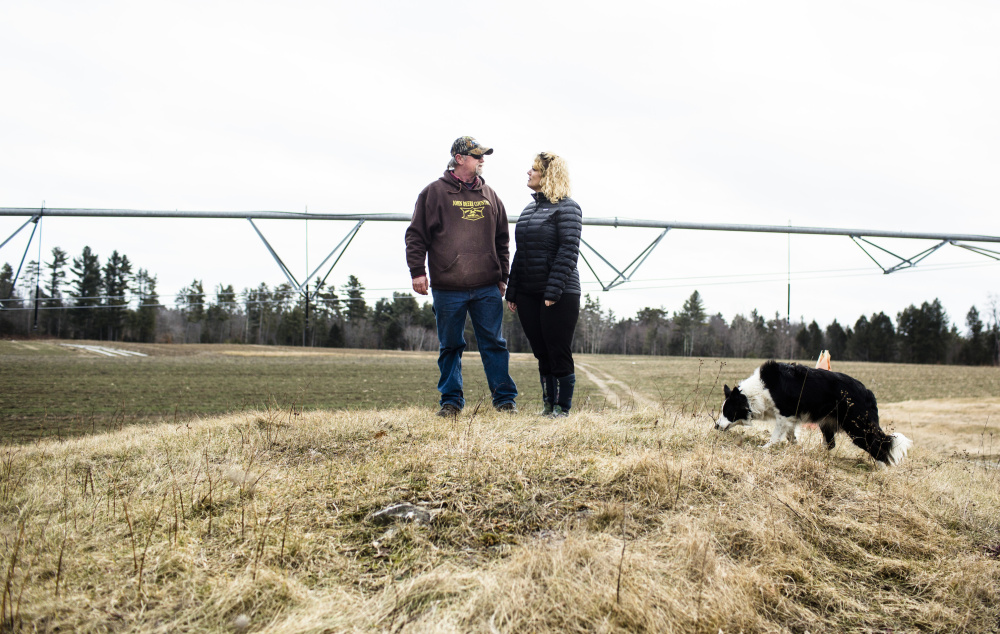
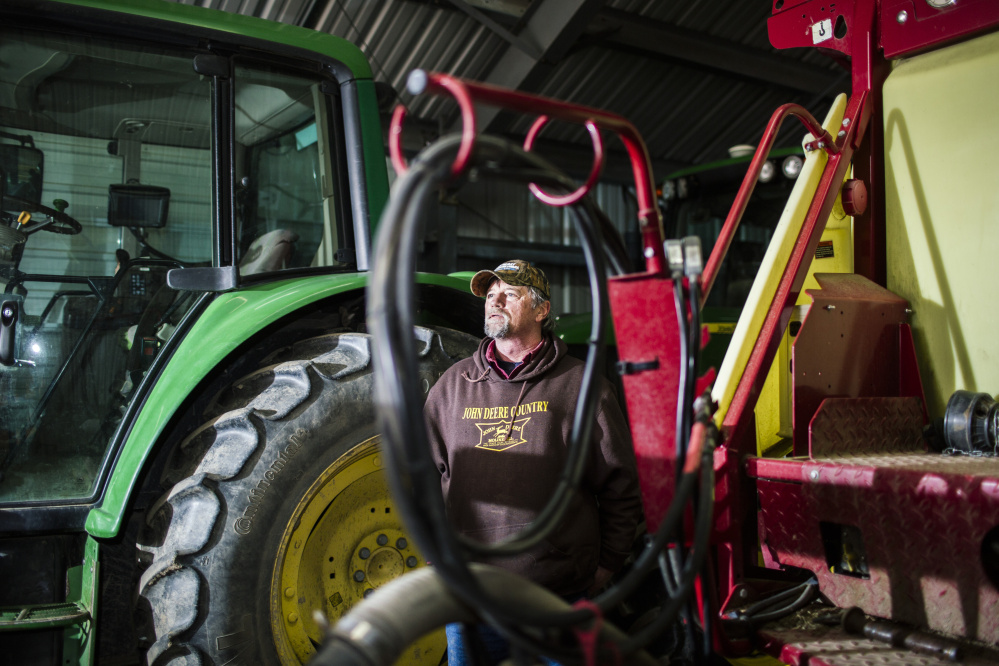
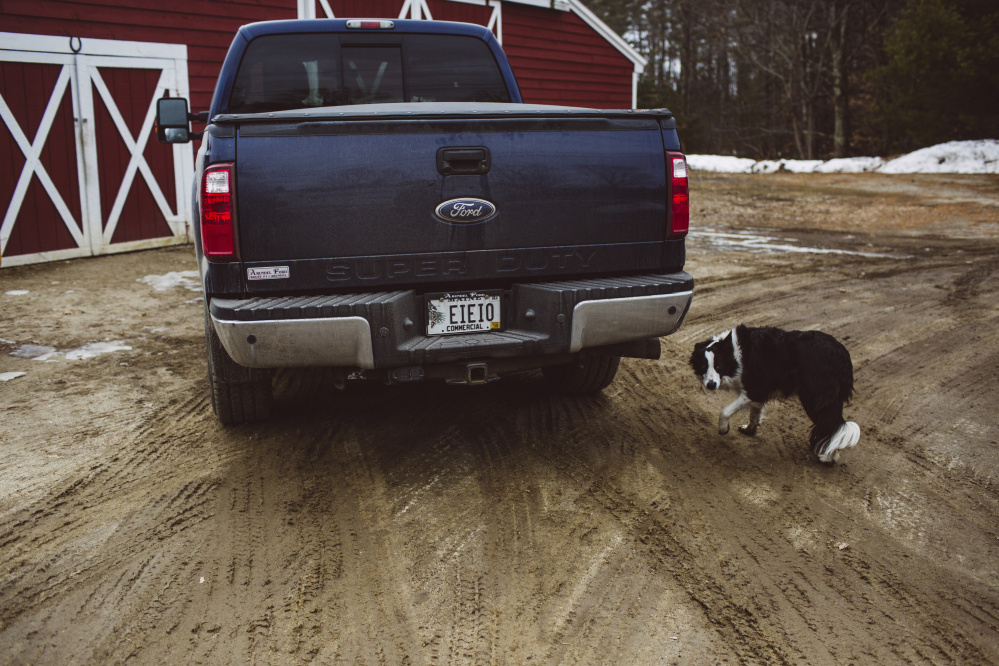
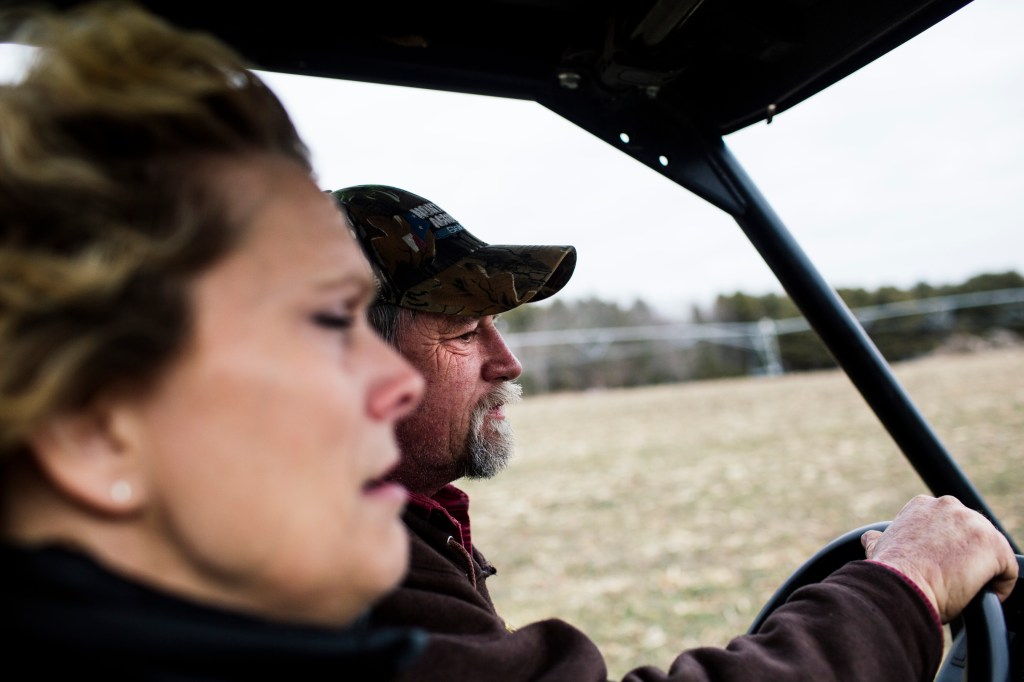
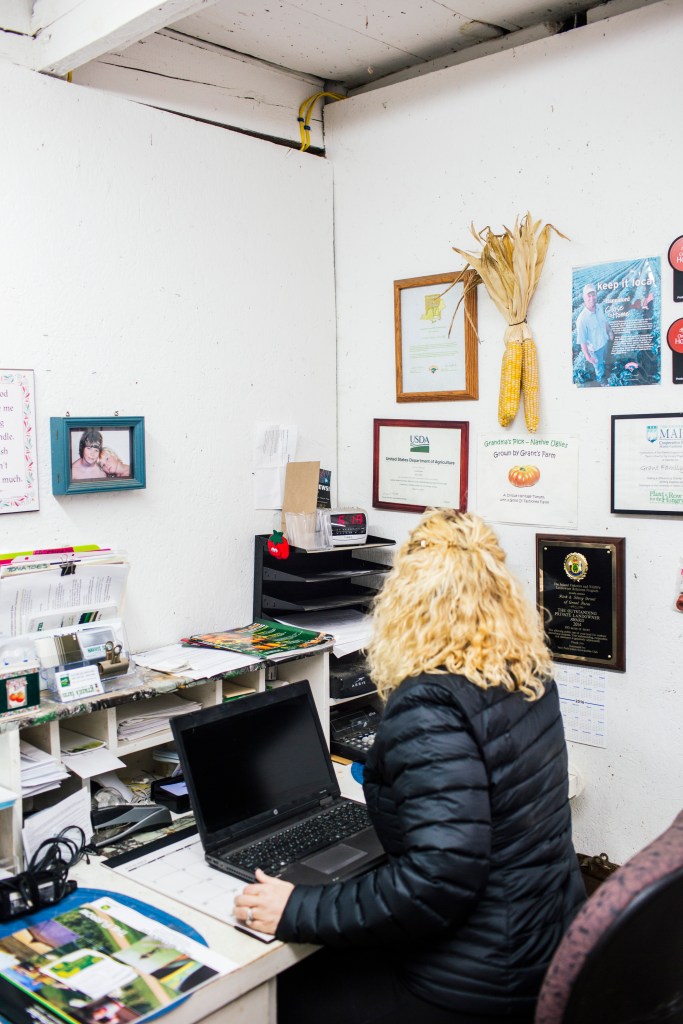
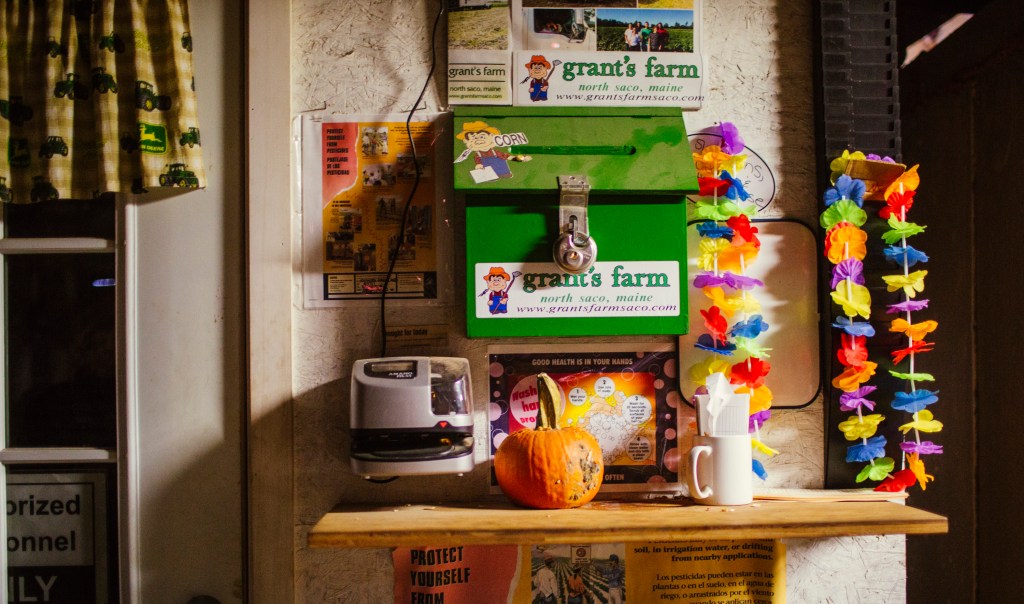

Success. Please wait for the page to reload. If the page does not reload within 5 seconds, please refresh the page.
Enter your email and password to access comments.
Hi, to comment on stories you must . This profile is in addition to your subscription and website login.
Already have a commenting profile? .
Invalid username/password.
Please check your email to confirm and complete your registration.
Only subscribers are eligible to post comments. Please subscribe or login first for digital access. Here’s why.
Use the form below to reset your password. When you've submitted your account email, we will send an email with a reset code.